Doctors Warn Dengue’s New D2 Strain Can Lead To High-Grade Fever And Shock Syndrome; How To Stay Safe
Technical Deepak
 14
14Symptoms of dengue outbreak
Monsoons do bring much-needed respite from summers, but it is also accompanied by mosquitoes borne disease, which breed in stagnant water. Every year thousands of cases of dengue, encephalitis, malaria, typhoid, and other mosquito-borne diseases are reported from different parts of the country. This year the condition got severe with the dengue outbreak reported in part of the country due to a new strain of Dengue virus (DENV) suspected of killing dozens of people in Uttar Pradesh alone.
A new variant of Dengue has been observed in over 11 states in the country which has become a big concern for health experts.
Though, the dengue outbreak is under control, several cases of high fever caused by the new variant of Dengue DENV 2 is being reported in many cities across the country.
 24
24Symptoms of the new strain of virus
Among the multiple variants -- DENV-1, DENV-2, DENV-3 and DENV-4 of the dengue virus, DENV 2 or the strain D2 is considered to be the most severe and can even lead to fatal internal bleeding and shock.
Dr Balram Bhargava, Director-General, Indian Council of Medical Research, told the media that the strain is particularly virulent and capable of inducing mortality. He added that it was one of the reasons behind the mysterious fever which had hit the western UP districts of Firozabad, Agra, Mathura and Aligarh that led to the deaths of many people last month.
Speaking to IANS, Dr B.L. Sherwal, RGSS Hospital Director, said that irrespective of the Dengue strain, the precaution is same as the same mosquito spreads the disease. He said that the most important precaution is not to let water stagnate around you and use full sleeve dress. He warned that this type of mosquito generally bites in the day time, so we need to take extra care of it. Dr Sherwal added that these are just types of dengue with more or less same symptoms and same pattern of prevention too.
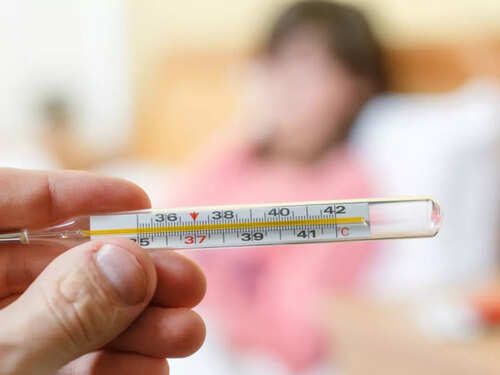 34
34Why this virus is more dangerous?
Dr Vineeta Singh Tandon of PSRI Hospital said that D2 is more virulent and can cause high grade fever, vomiting, joint pains, altered sensorium and may even lead to lethal complications resulting in dengue hemorrhagic fever and dengue shock syndrome.
If a person was infected by one sero type in the past, a second infection by another sero type increases the risk of causing dengue hemorrhagic fever. Rest, hydration and managing fever with paracetamol is advisable. One should avoid taking analgesics and aspirin.
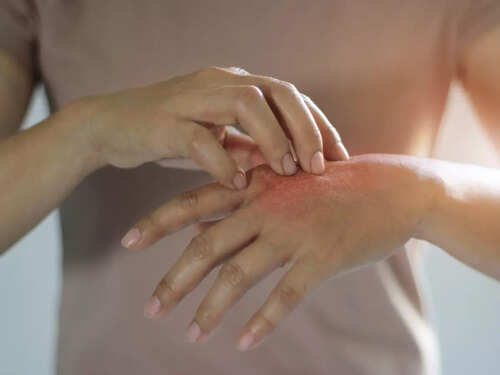 44
44How to stay safe from mosquito-borne diseases
It is very important to keep yourself safe from mosquito-borne diseases in the monsoon season. Manier time we do not realise that we are harbouring mosquitoes in our vicinity and increasing the risk of getting infected with mosquito-borne diseases. Taking small steps can help to keep you and your family safe. Here are a few things that you can do.
Do not let water stagnate anywhere in and around your home. Stagnant water is a perfect breeding ground for mosquitoes.
Keep your neighbourhood clean. Mosquitoes always hide in tall grass, hollow logs, and litter.
Keep your doors and windows closed in the evening.
Wear full sleeves clothes when you go out in the evening and apply mosquito repellant.
Eat healthily and drink lots of water. Also, keep your food covered to avoid food-borne diseases
COVID Trials For First Multivariant Coronavirus Jabs Begin: What It Means And How They Will Work
TIMESOFINDIA.COM | Last updated on - Sep 29, 2021, 11:45 IST
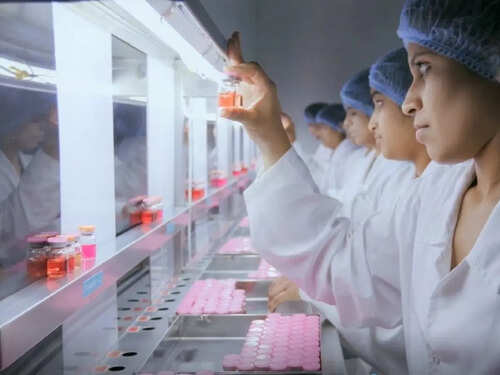 17
17Multivariant COVID vaccine jabs being clinically trialed: What should we know?
Vaccination against COVID-19 has emerged as one of the strongest keys in resuming a normal life, post-pandemic. While booster shots are being currently looked into, several researchers are now delving scientific know-how into the development of pan-COVID vaccines, or multi-variant vaccine jabs which are said to work against all known coronavirus variants. Countries, from UK to India are currently working on greenlighting such all-purpose jabs. While clinical trials are planned across sites, and some more planned, we explain how multivariant jabs could be the biggest change in our fight against COVID-19.
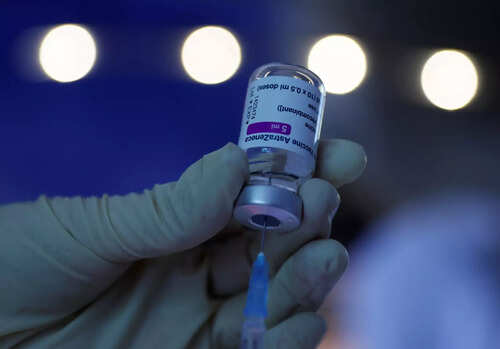 27
27What are multivariant COVID-19 jabs?
Multivariant coronavirus vaccine jabs are all-purpose vaccine jabs which work against more than one, or different variants of a pathogen, or in this case, the several variants of the SARS-COV-2 virus. While COVID variants have taken the world by storm, considerably reduced the efficiency of current coronavirus vaccine models, and more recently, have pushed booster vaccination into use, experts suggest that multivariant COVID-19 vaccine shots can be touted to be the biggest crusader right now, since they can effectively neutralize antibodies against all known variants of circulation, including Alpha, Beta, dreaded Delta and even Gamma variant.
Having a multivariant COVID vaccine would thus render any variants of concern incapable of dodging antibodies, offer sufficient protection and be useful against all strains.
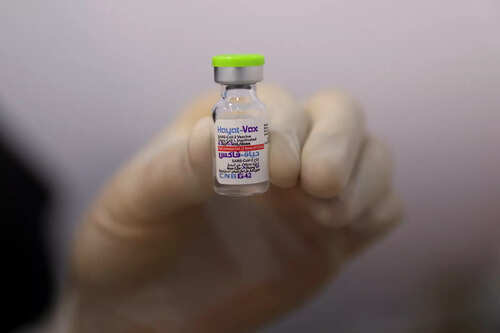 37
37How do they work? Have any multivariant vaccines been developed before?
Multivariant vaccines are a hopeful candidate in our ongoing fight against coronavirus and the many variants clouding recovery. While we are currently facing threats from the Delta variant, there could be possibilities that we face newer, more deadlier variants as well, including the Mu variant, which has been said to completely surpass vaccine-driven antibodies. In such a scenario, while we hope for COVID-19 to turn into a routine-flu like disease, scientists predict that multivariant defeating jabs are the only way to get over the pandemic.
For starters, multivariant jabs are designed in a similar manner to target core spike protein of the novel coronavirus, which is used by the virus to latch onto the body's cells and cause an attack. While variants are known to escape the vaccine-immunity and bring about changes in the spike protein structures, multivariant shots go one step further, and also work against non-spike proteins. Some of the vaccines also train the immune systems by flashing key genetic information associated with the pathogen, to help identify and fight the virus, and assay variants which may pose danger.
Some of the vaccine technologies, such as the SaRNA vaccines, much like mRNA vaccines do not contain actual fragments of the virus, but carry genetic instructions to identify and launch an attack against the virus.
Flu vaccines are the only currently used multivariant vaccines being used to launch tolerable immune responses against different flu strains.
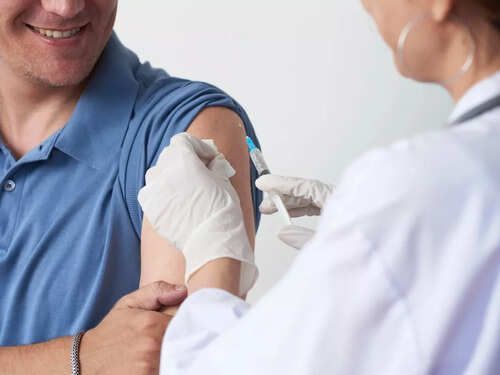 47
47What vaccines are being planned currently?
Medical authorities across the globe are currently working on development of some all-purpose, variant-defeating COVID vaccine models. One of the most prominent ones amongst these is being currently pushed into the clinical trial phase in Britain.
As per reports, pharma giant Gritstone, in partnership with the University of Manchester and Manchester University NHS Foundation Trust is conducting trials of the vaccine formulation titled 'GRT-R910', wherein volunteers over the age of 60 will be recruited initially, and more data will be published in the coming months.
In India, there are growing reports that authorities are considering developing 'cocktail' COVID vaccine formulations which could work against different variants of the virus in circulation. While the development is still said to be in its preliminary stages, authorities are considering working on expanding the potential of homegrown inactivated virus platforms, such as the one Covaxin is built on.
Elsewhere, countries like the US, Israel, Germany, France are also working on upgrading and remodeling vaccine technology platforms to meet the challenges posed by the fast-mutating coronavirus.
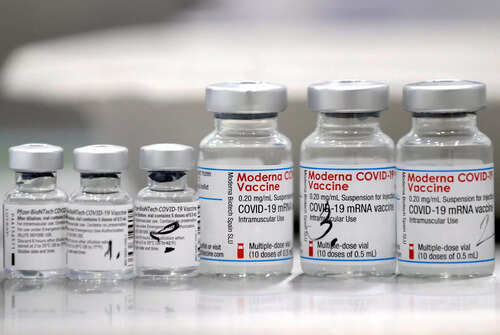 57
57Can these be better than booster vaccination? What do we know about their efficacy and protection?
Since variants of the virus have fueled havoc and caused many breakthroughs, many countries are pushing third (booster doses) into use. Even with the benefits, several experts have raised concerns over the supply and inequality issues it could create, and a stronger need to have strengthened, longer-lasting vaccine protection available. Researchers who are working on developing all-purpose jabs argue that instead of issuing repeated booster shots, having multivariant COVID jabs could be a better shot right now.
While we do not yet know about the efficacy and exact protection offered by these vaccine models, a multivariant vaccine could work against any present variants , and future variants which could raise concern and offer a uniform immune response. For example, the Gritstone vaccine is said to be a second-generation, self-amplifying COVID vaccine which could boost immunogenicity of first-gen COVID vaccines. The researchers will also work to see if the inoculation of the universal vaccine dose, in addition to the primary first-gen vaccines (such as Pfizer, Astrazeneca) could generate a better, more tolerable immune response than booster shots.
Since the current-use (first-gen) vaccines were modelled largely on the original strain and not any of the variants of concern, having multivariant vaccines could offer a preventive response against all known variants and provide ample protection, without the need for added dosage, or mixing vaccine formulations.
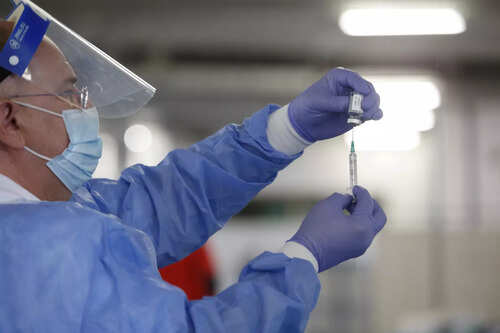 67
67When can these vaccines be ready?
Multivariant vaccines are currently at the very early stages of planning and production right now. While several countries are planning to roll out these vaccines, only the Gritstone-NHS-Manchester University partnered vaccine has progressed onto phase I clinical trial, which means that the results from the trials will only finish by 2022, and it can take a longer while for us to have those vaccines on hand.
 77
77Could there be limitations?
As stated above, the vaccines are still at a nascent stage of production and planning, and it's too early to call on its success, despite them being considered highly hopeful. We'll only start to know more about any weak points, or actual protection and immunogenicity profiles, once the vaccines are actually approved for use

0 Comments